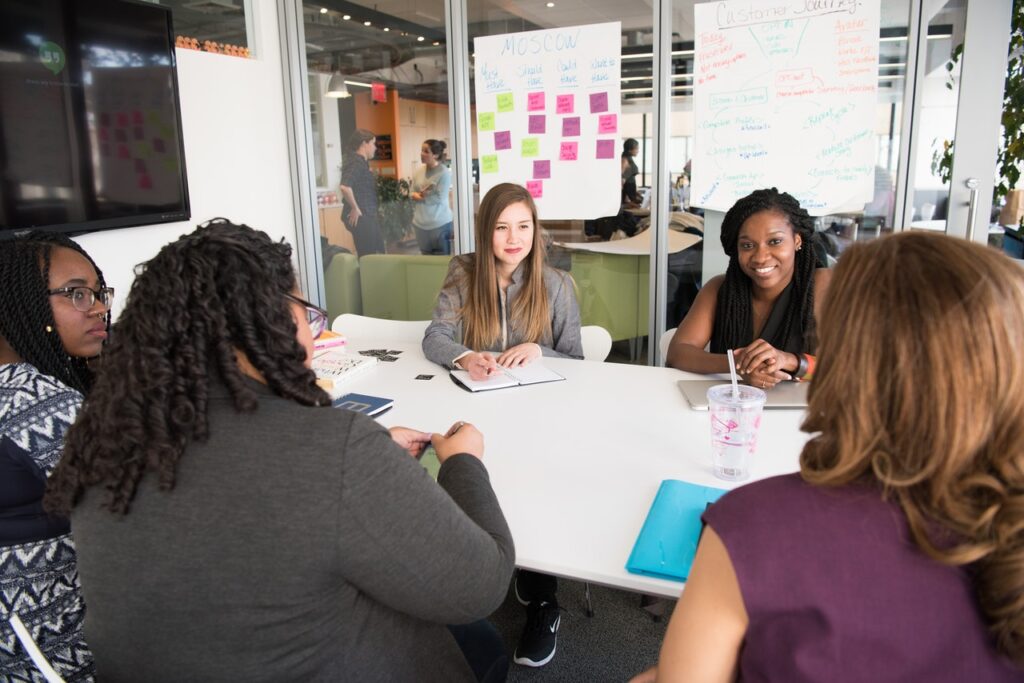Recently I dropped off my car at the mechanic and the person at the front desk asked me what I do. I told her I was a facilitator. Her eyes went wide, and she said, “Oh, you’re the one everyone hates.” I was taken aback. Sure, there are days where I feel like Leslie Knope in Parks and Rec when she says, “What I hear when I’m being yelled at is people caring loudly at me,” but I had never thought of facilitators as the ones people hate.
While this is an extreme example, it’s common for people to associate facilitation with the hapless person trying to regain control of an angry public meeting about a difficult issue. But like the root of the word facilitation – “to make things easier” — we think of our role as removing the obstacles for people to solve problems together.
There are some people who are experts at keeping our teeth healthy. We call them dentists. Some are experts at building things. We call them carpenters. Some are experts at expressing stories through motion. We call them dancers. We are experts in helping communities listen to one another and solve problems. We call ourselves facilitators. And like engineers, you may not always understand what we do or how we do it, but you know we’re important.
There are times as facilitator that we help a group make a decision. This could be about how to spend funding in their community or the approach they want to take to create housing solutions. These types of conversations are deliberative. Think of a jury. Juries are a group of people coming together to make decisions based on the information and evidence they have. Other times, we are working to help people understand one another across their differences. It could be people of different racial and ethnic backgrounds, or it could be people from different industries. This type of conversation is known as dialogue. There are also times when people need a facilitator to help them navigate a disagreement. Perhaps that conversation on funding has reached a stalemate or a group disagrees whether to focus on protecting mobile home parks or push for employee housing in their community. At the Canopy, we primarily do the first two types of facilitation: deliberative and dialogic. But that doesn’t mean conflict doesn’t come up and most collaborative groups need of a little of all three. Finally, all of these modes are needed as people try to align their differing interests into collective action over time. We call this kind of on-going conversation collaboration.
People come to us when they “want a neutral party.” This happens when people recognize that they need an outside perspective, someone who doesn’t have a stake in the outcome. Over the years, facilitators have realized the risk of neutrality. At its simplest, it’s impossible to be neutral. We all have internal biases and when left unchecked, they show up as preferences for different participants. Rather than being neutral, Canopy facilitators work to be multipartial. This means we attend to the needs of the many over the needs of any one individual. As we attend to everyone, we are partial toward looking for ways power dynamics may be impacting the conversation and working to distribute power across the group. Additionally, it means we have a continuous commitment to looking at our biases and how they may show up. This means we may let you know we’re not the right fit for a given topic or group while other times we may bring in a co-facilitator to get two perspectives involved.
We do provide a lot of facilitation, but our aim is always to help people take on this role in their own community. This may be in a formal facilitator role but even more, we want to “make things easier” by changing the culture within which we solve problems together. While many folks had to take a public speaking class in high school or college, no one had to take a public listening class. If we did, we might see that that the true art of facilitation lies in creating an ever-expanding pool of shared understanding. From that understanding, we can develop more creative solutions to the difficult problems we face together.


